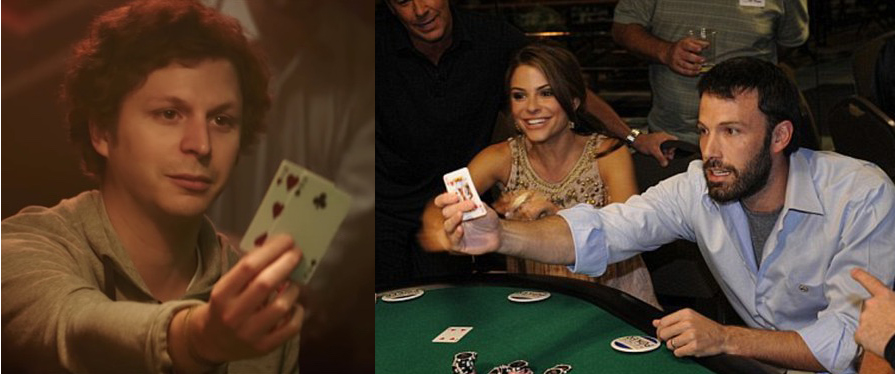Review: Aaron Sorkin Goes All In With 'Molly’s Game'
This review was originally published on UW Film Club, but has been reuploaded here with the author’s permission.
—
Oscar winning pen Aaron Sorkin steps out of writing room and into the director’s chair with his debut: Molly’s Game — a true to life story based on Molly Bloom and the underground poker games that made her famous. Like his screenplays before it, Molly’s Game has the same snap that all Sorkin scripts have, but this time without the direction that takes the film to the next level.
The story follows Molly Bloom (Jessica Chastain), a self-determine, former olympic ski hopeful who moves to Los Angeles after an injury puts her on the sideline. While working as a secretary, she is introduced to the world of underground poker and the famous Hollywood celebrities*, CEOs, and mobsters that inhabit it. Soon there after, she becomes proficient enough to start her own weekly games, and from then on, Molly enters an upward power trip and subsequent downward spiral that leads to an FBI arrest. It is then up to attorney Charlie Jaffey (Idris Elba) to defend Molly in court after learning there is more to her character than the greedy pit manager she was made out to be.
*The film never says the names of the Hollywood celebrities that cross paths with Molly (only using Michael Cera’s “Player X” as a stand in), but a quick Google search will reveal the likes of Ben Affleck, Tobey Maguire, Macaulay Culkin, and Leonardo DiCaprio.
Left, Michael Cera playing Player X. Right, Ben Affleck playing poker. Coincidence?
One of the film’s faults is how it cuts between sequences of young Molly navigating her way up the illegal gambling ladder and current-day Molly presenting her legal case with Jaffey. The former sequences are far more interesting not only because they are kinetic and stylized, but also because Molly’s rise to power is so much more fascinating than the end result. When ever the film took a break from these sequences to talk about her legal case, the film’s pacing and ability to command attention takes a considerable hit. These current day moments are in the film to give Molly sympathetic character traits and answer why she did the things she did, but when they are placed in between more momentous sequences, it’s hard to see them as anything but a roadblock to the narrative that is selling the movie.
This is of course still an Aaron Sorkin script at heart. The dialog reaches ungodly words per minute, there are quick jokes that fly by, and there are still quotable lines of dialog you find in every Sorkin script. It’s a beautiful thing to hear when in motion, and the opening scene perfectly encapsulates Sorkin’s writing style. At the heart of the script there is a message about Molly being her own hero in a world of powerful men; influenced by her father (played by Kevin Costner) and reenforced by the wealthy men that occupy her poker games, Molly rigorously declares that she has no heroes and once she achieves her goals she will be her own, but like all character archetypes, she has vulnerabilities and flaws that prevent herself from getting there. It’s a good script, but I couldn’t help but wonder how the film would of differed (or in this case benefited) from a different director taking hold of the project.
In the past, you have auteurs like Bennett Miller (Moneyball), Danny Boyle (Steve Jobs), and David Fincher (The Social Network) helm a Sorkin script. They take his tact sharp screenplay, add in their directing styles, and create a great film that combines the best of both worlds. It is this pairing of Sorkin script with auteur director that makes a “Sorkin movie” so great. But this time, Sorkin is in the director’s chair, and there is a notable change in how the film feels. It sounds like a Sorkin script, but it doesn’t look like a “Sorkin movie” we’ve come to expect, and because of it, Molly’s Game lives in the shadow of his other writer-only works.
Molly’s Game is a sharply written drama that lacks the directorial pizazz to go the extra mile. It’s a good start to Aaron Sorkin’s director career, but it could use a little more refinement and style to reach the level of his other contributions. Molly’s rise to power is worth the watch especially because it is underpinned with Sorkin dialog, but the film is fine as whole. You won’t be disappointed with Molly’s Game, but you won’t really be blown away either.
3/5 Stars
—



